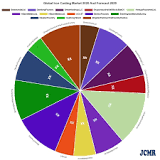Scientists hail major 'breakthrough' in understanding cause of SIDS in babies


In an Australian study, babies who died of SIDS had lower levels of an enzyme called butyrylcholinesterase shortly after birth.JORGE SILVA/Reuters
A team of Australian researchers have identified a biochemical marker in the blood that could help identify newborn babies at risk for sudden infant death syndrome (SIDS), a breakthrough they said creates an avenue to future tragedy-preventing interventions.
In their study, babies who died of SIDS had lower levels of an enzyme called butyrylcholinesterase (BChE) shortly after birth, the researchers said. BChE plays a major role in the brain’s arousal pathway, and low levels would reduce a sleeping infant’s ability to wake up or respond to its environment.
The findings are game changing and not only offer hope for the future, but answers for the past, study leader Dr. Carmel Harrington of The Children’s Hospital at Westmead in Australia said in a statement.
“An apparently healthy baby going to sleep and not waking up is every parent’s nightmare and until now there was absolutely no way of knowing which infant would succumb,” Dr. Harrington said. “But that’s not the case any more. We have found the first marker to indicate vulnerability prior to death.”
Using dried blood spots taken at birth as part of a newborn screening program, Dr. Harrington’s team compared BChE levels in 26 babies who later died of SIDS, 41 infants who died of other causes, and 655 surviving infants.
The fact that levels of the enzyme were significantly lower in the infants who subsequently died of SIDS suggests the SIDS babies were inherently vulnerable to dysfunction of the autonomic nervous system, which controls unconscious and involuntary functions in the body, the researchers said.
The Sydney Children’s Hospital Network in Australia called the discovery “a world-first breakthrough.”
A failure to wake up when appropriate “has long been considered a key component of an infant’s vulnerability” to SIDS, the research team said in The Lancet’s eBio Medicine.
SIDS is the unexplained death of an apparently healthy infant while asleep. Dr. Harrington lost her own child to SIDS 29 years ago and has dedicated her career to researching the condition, according to the statement.
Further research “needs to be undertaken with urgency” to determine whether routine measurement of BChE could potentially help prevent future SIDS deaths, the investigators said.
Our Morning Update and Evening Update newsletters are written by Globe editors, giving you a concise summary of the day’s most important headlines. Sign up today.


 Canada
Canada Argentina
Argentina  Australia
Australia  Austria
Austria  Brazil
Brazil  Germany
Germany  Ireland
Ireland  Italy
Italy  Malaysia
Malaysia  Mexico
Mexico  New Zealand
New Zealand  Poland
Poland  South Africa
South Africa  United Kingdom
United Kingdom  United States
United States 

























